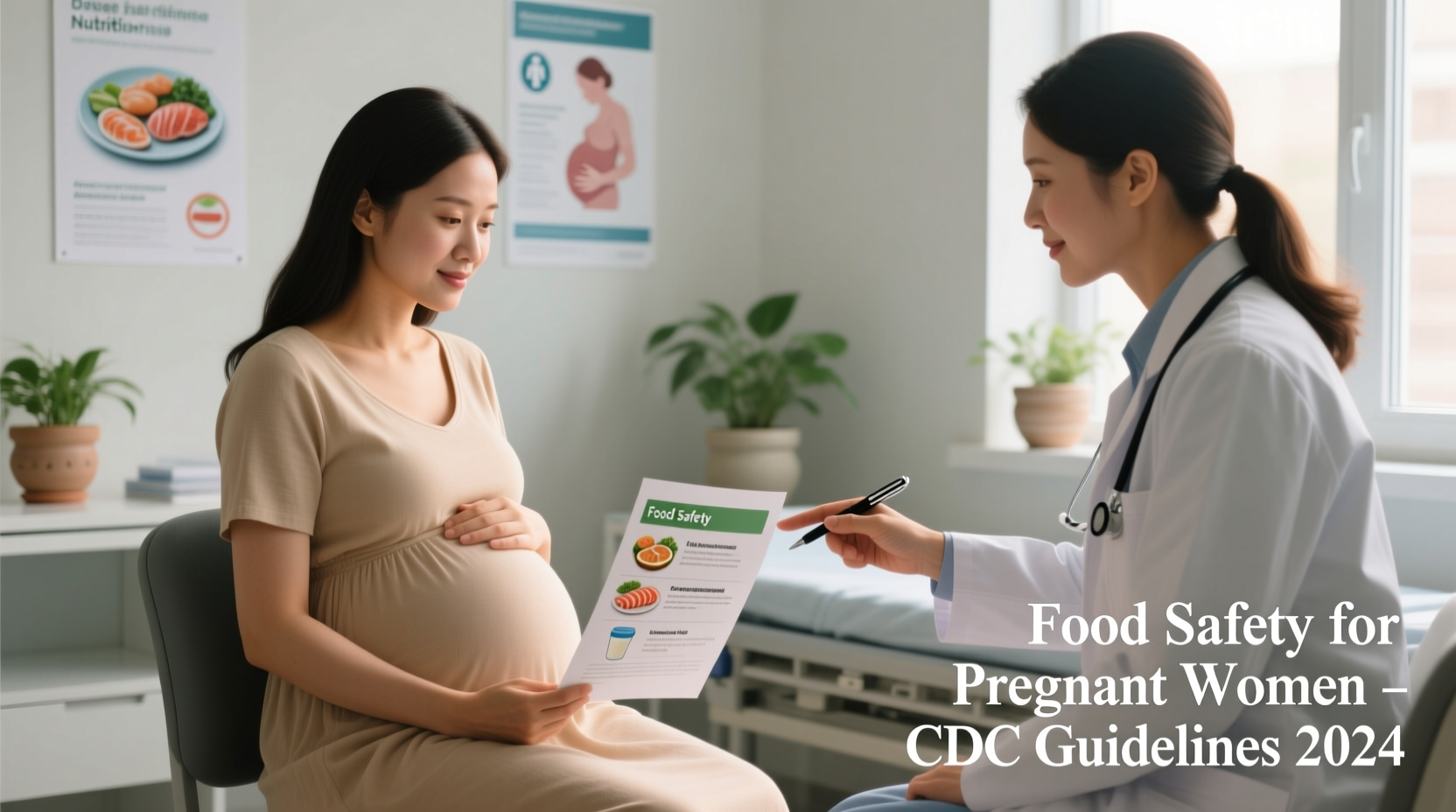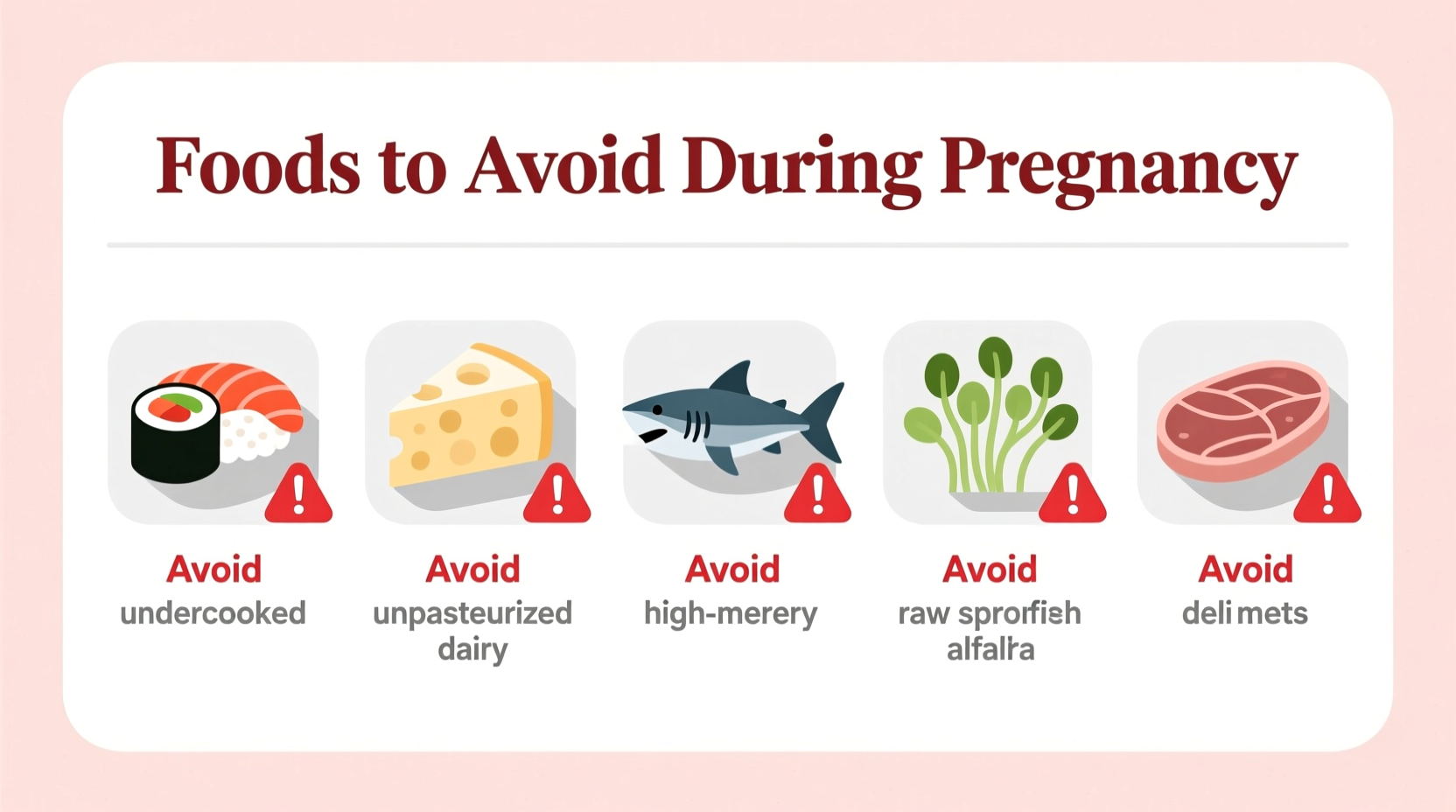Expecting mothers need to be particularly mindful about their diet to protect both their own health and their baby's development. Certain foods carry risks that are especially concerning during pregnancy due to changes in the immune system and the developing fetus's vulnerability. This guide provides evidence-based information about foods to avoid during pregnancy, explaining why they're risky and offering safe alternatives.
Why Food Safety Matters More During Pregnancy
During pregnancy, your immune system naturally becomes less active to prevent your body from rejecting the growing fetus. While this is essential for a healthy pregnancy, it also makes you more susceptible to foodborne illnesses. According to the Centers for Disease Control and Prevention (CDC), pregnant women are ten times more likely to contract listeriosis than the general population. This condition can lead to miscarriage, stillbirth, or severe illness in newborns.
Foods That Pose Serious Risks During Pregnancy
Understanding which foods to avoid isn't just about following arbitrary rules—it's about protecting your baby from potential harm. Let's examine the most critical categories of foods that require special attention during pregnancy.
| Foods to Avoid | Primary Risk | Safe Alternatives |
|---|---|---|
| Raw or undercooked meats | Listeria, Salmonella, Toxoplasma | Fully cooked meats (165°F internal temperature) |
| Unpasteurized dairy and juices | Listeria, E. coli | Pasteurized dairy products and juices |
| High-mercury fish (shark, swordfish, king mackerel) | Methylmercury exposure | Low-mercury fish (salmon, shrimp, pollock) |
| Raw or undercooked eggs | Salmonella | Pasteurized eggs or egg products |
| Excessive caffeine (more than 200mg daily) | Potential miscarriage risk | Decaf options, herbal teas (consult provider) |
High-Risk Bacteria: Listeria and Salmonella Concerns
Listeria monocytogenes is particularly dangerous during pregnancy because it can cross the placenta and infect the fetus, even if the mother shows mild or no symptoms. The American College of Obstetricians and Gynecologists (ACOG) specifically warns against consuming unpasteurized milk, soft cheeses made from unpasteurized milk (like feta, Brie, Camembert), refrigerated pâtés, and deli meats unless they're heated until steaming hot.
Raw or undercooked eggs present another significant risk. Avoid foods containing raw eggs such as homemade Caesar dressing, mayonnaise, ice cream, and cookie dough. The FDA recommends pregnant women use pasteurized eggs for any recipe calling for raw or partially cooked eggs.

Mercury Exposure: Understanding Fish Consumption Guidelines
Fish provides important nutrients like omega-3 fatty acids that support baby's brain development, but certain fish contain high levels of mercury that can impair neurological development. The FDA and EPA jointly advise pregnant women to avoid shark, swordfish, king mackerel, and tilefish completely. Instead, choose lower-mercury options like salmon, shrimp, pollock, and catfish, limiting consumption to 2-3 servings (8-12 ounces) per week.
It's important to understand that mercury accumulation happens over time—occasional consumption of higher-mercury fish isn't likely to cause harm, but regular consumption can lead to dangerous buildup. This context boundary matters because many women become unnecessarily anxious after accidentally consuming a small amount of prohibited fish.
Other Dietary Considerations During Pregnancy
Beyond the major risk categories, several other foods warrant caution:
- Excessive caffeine: While moderate caffeine consumption (up to 200mg daily, about one 12-ounce cup of coffee) is generally considered safe, higher amounts have been associated with increased miscarriage risk according to research published in the American Journal of Obstetrics and Gynecology.
- Alcohol: No amount of alcohol is considered safe during pregnancy. Fetal Alcohol Spectrum Disorders are completely preventable by avoiding alcohol entirely.
- Raw sprouts: Alfalfa, clover, radish, and mung bean sprouts can harbor bacteria and should be avoided unless cooked thoroughly.
- Unwashed produce: Always thoroughly wash fruits and vegetables to remove potential soil contaminants like toxoplasma.
Practical Food Safety Tips for Expecting Mothers
Implementing these practical strategies can help reduce risks while maintaining a varied, nutritious diet:
- When dining out, don't hesitate to request that meats be cooked thoroughly—even if the menu offers medium-rare options
- Keep your refrigerator at 40°F or below and your freezer at 0°F to prevent bacterial growth
- Use separate cutting boards for raw meats and produce to avoid cross-contamination
- When in doubt about a food's safety, choose the safer alternative or consult your healthcare provider
- Read labels carefully—"fresh squeezed" juices may not be pasteurized
When to Consult Your Healthcare Provider
Every pregnancy is unique, and your healthcare provider can offer personalized guidance based on your health history and circumstances. If you accidentally consume something on the avoid list, don't panic—contact your provider to discuss your specific situation. Most exposures don't result in complications, but it's always best to get professional advice.
Remember that food safety during pregnancy isn't about perfection—it's about significantly reducing risks while enjoying a varied, nutritious diet. The goal is to make informed choices that support a healthy pregnancy without unnecessary anxiety.











 浙公网安备
33010002000092号
浙公网安备
33010002000092号 浙B2-20120091-4
浙B2-20120091-4